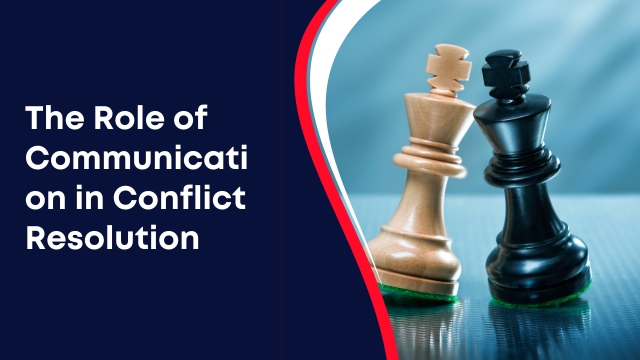Conflict is a natural part of life. It can happen at home, work, or in friendships. How we handle these conflicts matters. Effective communication plays a crucial role in resolving disagreements. This article will explore how communication can help us navigate conflicts successfully.
Understanding Conflict
Before we discuss communication, let’s define conflict. Conflict arises when two or more parties have different opinions, needs, or goals. It can involve big issues, like finances, or small ones, like what movie to watch.
While conflict is normal, unresolved disagreements can lead to bigger problems. Poor communication often makes conflicts worse. Addressing conflicts early and effectively is essential.
The Importance of Communication
Communication is the bridge that connects people. It allows us to express our thoughts and feelings. When conflict arises, clear communication can help us understand each other better.
- Expressing Feelings: When you share your feelings honestly, it opens the door for understanding. For example, saying, “I feel hurt when you interrupt me”, can help the other person see your perspective.
- Clarifying Needs: Clear communication helps clarify what each party needs. For instance, if you need more support at home, expressing that can help your partner understand how to help.
- Finding Solutions: Communication allows for brainstorming solutions together. When both parties share their ideas, they can often find a compromise that works for everyone.
Active Listening
One of the most important aspects of effective communication is active listening. This means truly paying attention to what the other person is saying. Here’s how to practice active listening:
- Be Present: Put away distractions. Focus entirely on the speaker. Show that you are engaged by nodding or using small verbal cues like “I see” or “Go on.”
- Reflect: After the other person speaks, summarize what you heard. For example, you can say, “So, you feel overwhelmed with the project deadline?” This shows you are listening and helps clarify any misunderstandings.
- Ask Questions: If you’re unsure about something, ask questions. This can help clear up confusion and demonstrate your interest in understanding their perspective.
Maintaining a Calm Tone
Your tone of voice can significantly impact how your message is received. During a conflict, emotions can run high. Staying calm is crucial. Here are some tips:
- Breathe Deeply: If you start to feel angry or overwhelmed, take a few deep breaths before responding. This helps you regain control of your emotions.
- Speak Slowly: A calm voice helps convey your message more effectively. Speaking too quickly can make you sound anxious or aggressive.
- Use Positive Body Language: Non-verbal cues, like open arms or a relaxed posture, can help create a positive atmosphere for discussion.
Finding Common Ground
In any conflict, finding common ground is essential. It helps both parties feel connected and understood. Here’s how to do it:
- Identify Shared Goals: Start by identifying what you both want. For example, if you’re arguing about a budget, both parties likely want financial stability. Focusing on shared goals helps create a sense of teamwork.
- Acknowledge Differences: It’s okay to have different opinions. Acknowledging these differences can reduce tension and help find a compromise.
Brainstorming Solutions
Once both parties feel heard and understood, it’s time to find solutions. Collaborative brainstorming can be very effective. Here’s how:
- Encourage Ideas: Invite both sides to share possible solutions. Write them down, and don’t dismiss any idea right away. Sometimes, the most unusual suggestions can lead to creative solutions.
- Evaluate Options Together: Discuss the pros and cons of each idea. This collaboration fosters teamwork and helps both parties feel involved in the resolution process.
- Agree on a Plan: Once a solution is chosen, agree on an action plan. Make sure both parties understand their roles and responsibilities moving forward.
Remember, conflicts are a part of life. However, with strong communication skills, you can turn them into opportunities for growth and understanding. By practising these techniques, you’ll build healthier relationships and create a more positive environment, whether at home, work or in your friendships. Embrace the power of communication, and watch as conflicts become easier to manage.



